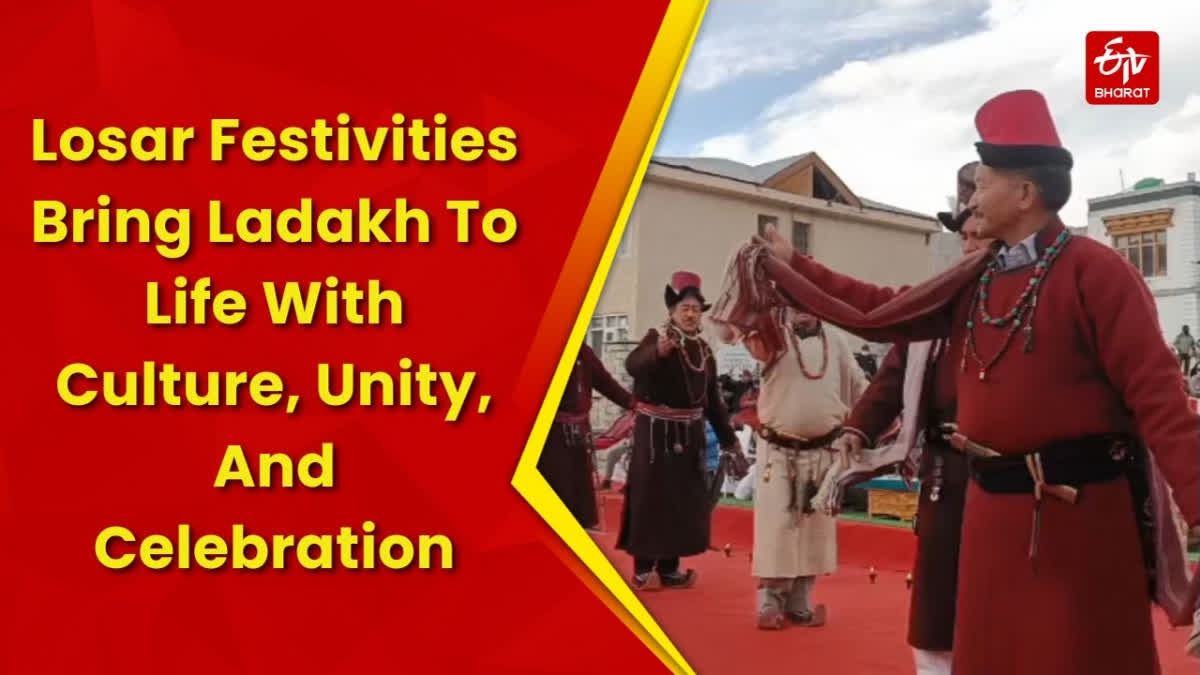Leh, Ladakh: The celebration of Ladakhi Losar, marking the New Year in the Tibetan calendar, commenced today with great enthusiasm across Ladakh. Rooted deeply in the culture and heritage of the region, Losar is a time for joy, reflection, and community gatherings.
This year, Losar, Christmas, and New Year are being celebrated in a grand manner organised by LAHDC Leh with support from the Culture Academy, Leh. A series of activities held in the Leh market from December 20 to December 31 showcased cultural performances, choirs, and market promotions, creating an inclusive and festive atmosphere for both residents and visitors.
Tsewang Paljor, Deputy Secretary, Ladakh Academy of Art, Culture & Languages, highlighted the importance of preserving these age-old traditions while adapting to modern times. He explained, “ The main purpose of showcasing these traditions and customs in the market is to bring them closer to people who may not have the opportunity to witness them in remote villages. Additionally, it aims to inspire villagers by demonstrating that even in the 21st century, there is a strong interest in preserving and appreciating these traditions. This can motivate them to take pride in keeping these customs alive, even as others may have moved away from them. It also offers a chance to share glimpses of Ladakhi culture with tourists, enriching their experience and understanding of our heritage.”
Discussing how Ladakhi Losar has evolved over the years, he said, "I am pleased to see that over the years, our traditions have evolved and adapted. Stagnation can lead to vulnerabilities, but, fortunately, our customs are changing with time. Change is inevitable, and we must accept it. However, what matters most is how we manage that change and at what pace. If the changes align with and respect the values of our society, they are welcome. Sometimes, the pace of change can be too rapid and sudden, leading to criticism. For instance, some describe the sudden development in Ladakh as akin to moving directly from a horse to an airplane. This is not the kind of change we desire. What we need is a systematic, well-thought-out approach to change, ensuring it integrates smoothly with our cultural values and heritage."


